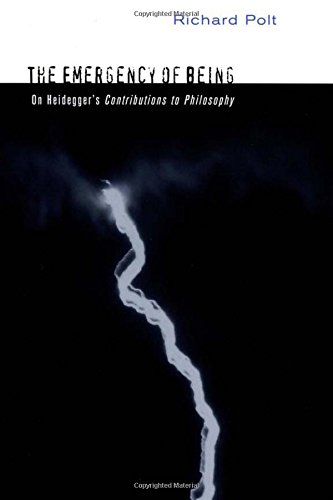

Most ebook files are in PDF format, so you can easily read them using various software such as Foxit Reader or directly on the Google Chrome browser.
Some ebook files are released by publishers in other formats such as .awz, .mobi, .epub, .fb2, etc. You may need to install specific software to read these formats on mobile/PC, such as Calibre.
Please read the tutorial at this link. https://ebooknice.com/page/post?id=faq
We offer FREE conversion to the popular formats you request; however, this may take some time. Therefore, right after payment, please email us, and we will try to provide the service as quickly as possible.
For some exceptional file formats or broken links (if any), please refrain from opening any disputes. Instead, email us first, and we will try to assist within a maximum of 6 hours.
EbookNice Team

Status:
Available4.4
29 reviews"The heart of history, for Heidegger, is not a sequence of occurrences but the eruption of significance at critical junctures that bring us into our own by making all being, including our being, into an urgent issue. In emergency, being emerges."―from The Emergency of Being
The esoteric Contributions to Philosophy, often considered Martin Heidegger's second main work after Being and Time, is crucial to any interpretation of his thought. Here Heidegger proposes that being takes place as "appropriation." Richard Polt's independent-minded account of the Contributions interprets appropriation as an event of emergency that demands to be thought in a "future-subjunctive" mode. Polt explores the roots of appropriation in Heidegger's earlier philosophy; Heidegger's search for a way of thinking suited to appropriation; and the implications of appropriation for time, space, human existence, and beings as a whole. In his concluding chapter, Polt reflects critically on the difficulties of the radically antirationalist and antimodern thought of the Contributions.
Polt's original reading neither reduces this challenging text to familiar concepts nor refutes it, but engages it in a confrontation―an encounter that respects a way of thinking by struggling with it. He describes this most private work of Heidegger's philosophy as "a dissonant symphony that imperfectly weaves together its moments into a vast fugue, under the leitmotif of appropriation. This fugue is seeded with possibilities that are waiting for us, its listeners, to develop them. Some are dead ends―viruses that can lead only to a monolithic, monotonous misunderstanding of history. Others are embryonic insights that promise to deepen our thought, and perhaps our lives, if we find the right way to make them our own."